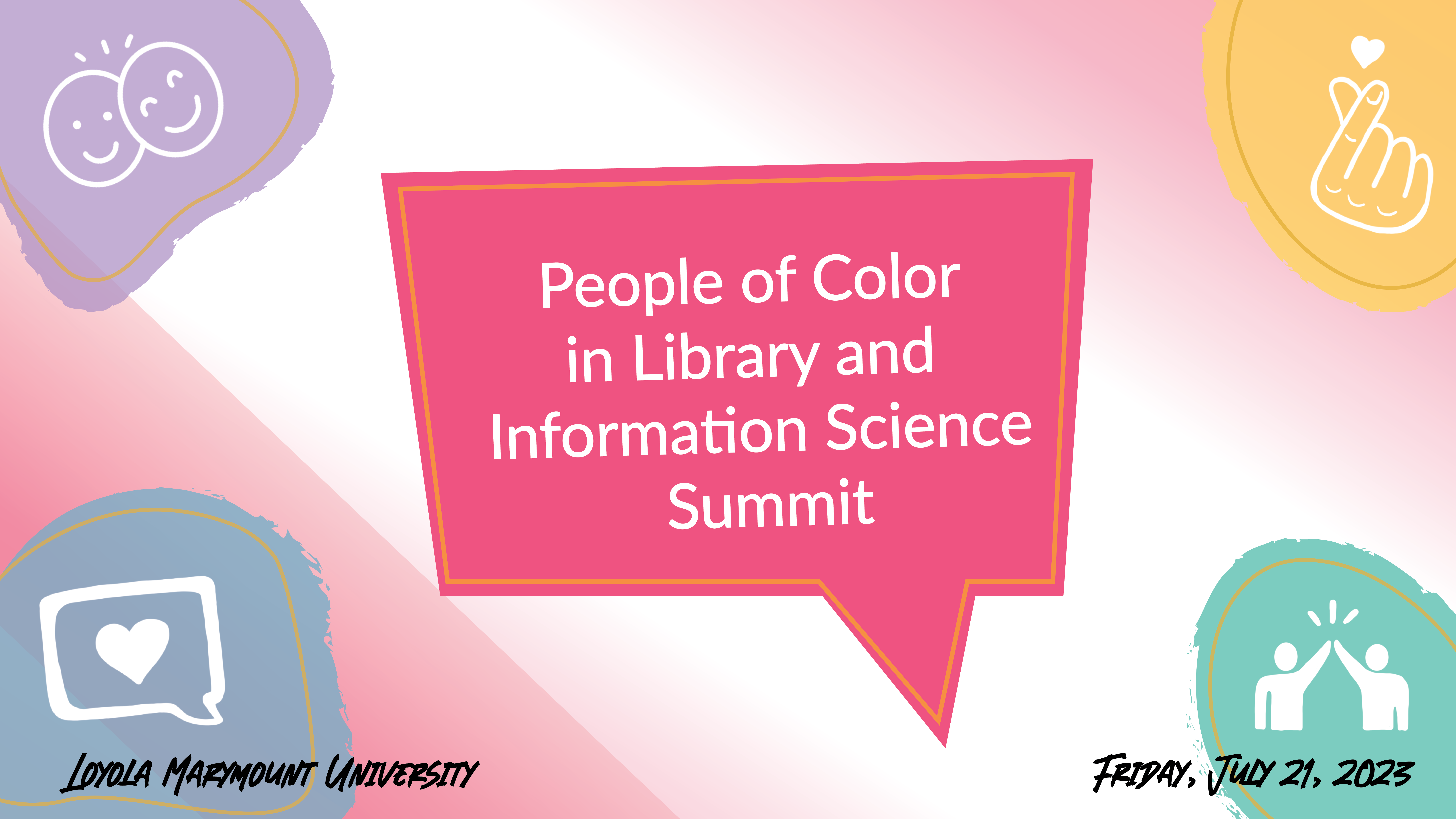Session 1A: Building an Inclusive Culture of Mentoring in Library and Information Science: Strategies for Mentorship Success and Professional Growth
Event Type
Presentation
Location
McIntosh Center, U-Hall 3999
Track
Mentoring
Start Date
21-7-2023 11:15 AM
End Date
21-7-2023 12:15 PM
Description
Actively engaging in mentoring as a mentor or mentee can have a profound impact on professional outcomes. A number of professionals in Library and Information Science (LIS) have described the effects as life-changing (Burke and Tumbleson 9). Creating and maintaining an inclusive culture of mentoring may serve as the vital component to recruiting and retaining People of Color (POC) in academic libraries. Programs that refashion and reimagine what mentoring is and could be can inspire librarians who are the representation they have not had, lead and find exactly what they are in need of. Everyone needs (or has needed) help at some point along the way, and it’s reasonable to presume we look to certain people to guide us through the precarious labyrinth of becoming library professionals. A long-standing principle of librarians has been to play a role in the development of other librarians from early beginnings on through mid-career; it is also the responsibility of new and mid-career librarians with a desire to grow both professionally and personally to actively seek guidance and discuss failures, doubts, struggles, and also the success of others to inform their professional journey. The presenters will share their mentor/mentee experience from the moment, neither of them knew it began, through today. They will discuss the need for intentionality in the search for a mentor which includes developing an understanding of the institutional culture around mentoring, and the importance of taking the lead in discovering your people and your village within LIS. The presenters will offer personal strategies used to develop more inclusive cultures of mentoring where such programs are lacking or non-existent. Attendees will be introduced to techniques that will help them distinguish between advantageous and ineffectual mentoring relationships, so knowing the signs of an incompatible match becomes an indispensable skill. /
Outcomes:
- Attendees will gain a better understanding of mentoring as an ongoing, career-long process
- Attendees will learn easy to implement methods for piloting mentor programs within their organizations
- Presenters will convey personal strategies used in developing mentor/mentee relationships to help attendees recognize and address incompatibility found in some mentoring programs
Citation
Burke, John J., and Beth E. Tumbleson. “Mentoring in Academic Libraries.” Library Leadership & Management, vol. 33, no. 4, 2019, pp. 1–19, https://doi.org/10.5860/llm.v33i4.7348.
Session 1A: Building an Inclusive Culture of Mentoring in Library and Information Science: Strategies for Mentorship Success and Professional Growth
McIntosh Center, U-Hall 3999
Actively engaging in mentoring as a mentor or mentee can have a profound impact on professional outcomes. A number of professionals in Library and Information Science (LIS) have described the effects as life-changing (Burke and Tumbleson 9). Creating and maintaining an inclusive culture of mentoring may serve as the vital component to recruiting and retaining People of Color (POC) in academic libraries. Programs that refashion and reimagine what mentoring is and could be can inspire librarians who are the representation they have not had, lead and find exactly what they are in need of. Everyone needs (or has needed) help at some point along the way, and it’s reasonable to presume we look to certain people to guide us through the precarious labyrinth of becoming library professionals. A long-standing principle of librarians has been to play a role in the development of other librarians from early beginnings on through mid-career; it is also the responsibility of new and mid-career librarians with a desire to grow both professionally and personally to actively seek guidance and discuss failures, doubts, struggles, and also the success of others to inform their professional journey. The presenters will share their mentor/mentee experience from the moment, neither of them knew it began, through today. They will discuss the need for intentionality in the search for a mentor which includes developing an understanding of the institutional culture around mentoring, and the importance of taking the lead in discovering your people and your village within LIS. The presenters will offer personal strategies used to develop more inclusive cultures of mentoring where such programs are lacking or non-existent. Attendees will be introduced to techniques that will help them distinguish between advantageous and ineffectual mentoring relationships, so knowing the signs of an incompatible match becomes an indispensable skill. /
Outcomes:
- Attendees will gain a better understanding of mentoring as an ongoing, career-long process
- Attendees will learn easy to implement methods for piloting mentor programs within their organizations
- Presenters will convey personal strategies used in developing mentor/mentee relationships to help attendees recognize and address incompatibility found in some mentoring programs
Citation
Burke, John J., and Beth E. Tumbleson. “Mentoring in Academic Libraries.” Library Leadership & Management, vol. 33, no. 4, 2019, pp. 1–19, https://doi.org/10.5860/llm.v33i4.7348.




